
Limassol: The Heartbeat of Cyprus
Limassol, a vibrant coastal city on the southern coast of Cyprus, is a blend of rich history, modern amenities, and beautiful beaches. Known for its bustling port, Limassol offers a unique mix of old-world charm and contemporary attractions. The city is home to numerous archaeological sites, medieval castles, and museums that provide a glimpse into its storied past. Strolling through the old town, you'll encounter narrow winding streets filled with traditional Cypriot architecture, charming cafes, and local markets. The Limassol Castle, where Richard the Lionheart married Berengaria of Navarre, now houses the Cyprus Medieval Museum. The nearby Limassol Marina and promenade provide a delightful contrast with their upscale shops, restaurants, and stunning sea views. Limassol is also famous for its vibrant festivals, particularly the annual Wine Festival and the Carnival, which attract visitors from around the globe. The city’s nightlife is lively, with numerous bars, clubs, and live music venues ensuring that there’s always something to do. Whether you're interested in sunbathing on sandy beaches, exploring historical landmarks, or enjoying the local cuisine, Limassol offers an unforgettable experience.
Local tips in Limassol
- Visit the Limassol Castle and learn about its historical significance.
- Explore the Limassol Marina for upscale dining and shopping experiences.
- Attend the Limassol Wine Festival if visiting in late August or early September.
- Walk along the Molos Promenade for a scenic and relaxing experience.
- Try traditional Cypriot dishes like souvlaki, halloumi, and kleftiko at local tavernas.
- Take a day trip to the ancient city of Kourion, just a short drive from Limassol.
Neighbourhoods in Limassol
Limassol: The Heartbeat of Cyprus
Limassol, a vibrant coastal city on the southern coast of Cyprus, is a blend of rich history, modern amenities, and beautiful beaches. Known for its bustling port, Limassol offers a unique mix of old-world charm and contemporary attractions. The city is home to numerous archaeological sites, medieval castles, and museums that provide a glimpse into its storied past. Strolling through the old town, you'll encounter narrow winding streets filled with traditional Cypriot architecture, charming cafes, and local markets. The Limassol Castle, where Richard the Lionheart married Berengaria of Navarre, now houses the Cyprus Medieval Museum. The nearby Limassol Marina and promenade provide a delightful contrast with their upscale shops, restaurants, and stunning sea views. Limassol is also famous for its vibrant festivals, particularly the annual Wine Festival and the Carnival, which attract visitors from around the globe. The city’s nightlife is lively, with numerous bars, clubs, and live music venues ensuring that there’s always something to do. Whether you're interested in sunbathing on sandy beaches, exploring historical landmarks, or enjoying the local cuisine, Limassol offers an unforgettable experience.
When is the best time to go to Limassol?
Iconic landmarks you can’t miss
Molos
Discover the beauty of Molos, Limassol's iconic promenade, where stunning sea views, lush parks, and vibrant sculptures await your visit.
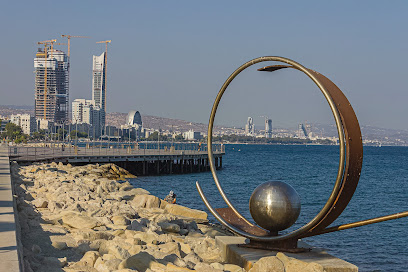
Κourion Ancient Amphitheater
Explore a stunning Greco-Roman amphitheater with breathtaking Mediterranean views, where ancient history comes to life through cultural performances.
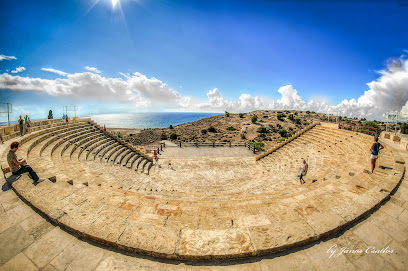
Limassol Castle - Cyprus Medieval Museum
Explore Limassol Castle, a historic gem in Cyprus, showcasing medieval artifacts and architecture amidst stunning coastal views.
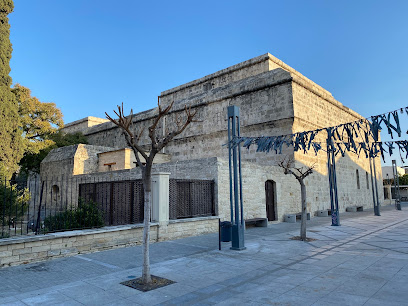
Kolossi Castle
Discover the medieval might of Kolossi Castle, a Crusader fortress with a legacy of knights, sugar, and the world-famous Commandaria wine.
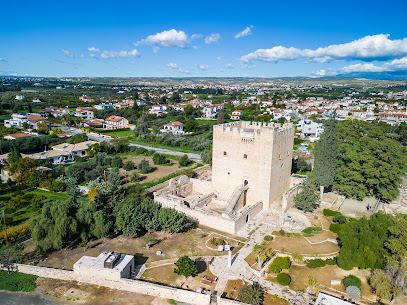
Limassol Municipal Garden
Explore the lush landscapes and vibrant culture at Limassol Municipal Garden, a perfect escape in the heart of Cyprus.
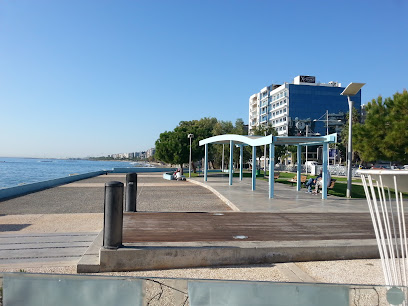
Υδροπάρκο Φασουρίου Watermania
Experience a day of aquatic adventure at Cyprus's largest water park, with thrilling slides and relaxing pools for all ages.
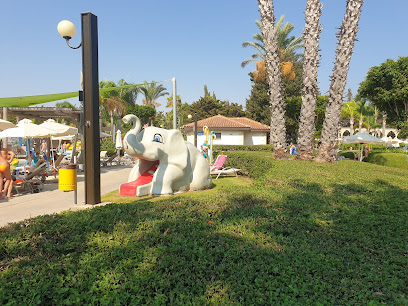
Archaeological Site of Amathous
Explore the Archaeological Site of Amathous, a historical landmark in Cyprus where ancient ruins meet stunning coastal views.
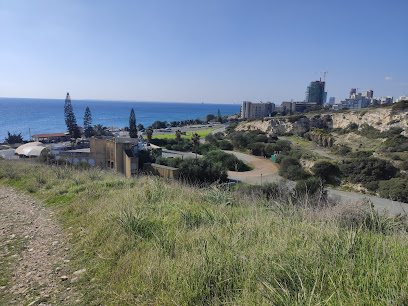
Ayia Napa Cathedral
Explore the beauty and spirituality of Ayia Napa Cathedral, a must-visit Greek Orthodox church in Limassol, Cyprus, rich in history and architectural elegance.
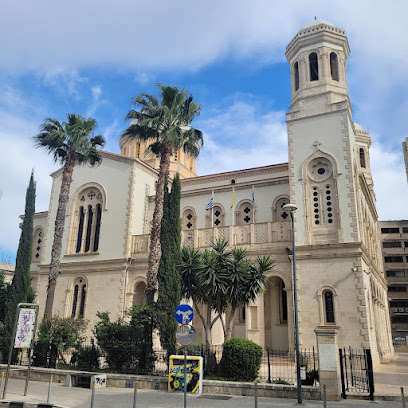
The Liberty Monument
A poignant Nicosia landmark symbolizing Cyprus's fight for freedom and honoring the EOKA fighters who struggled for independence.
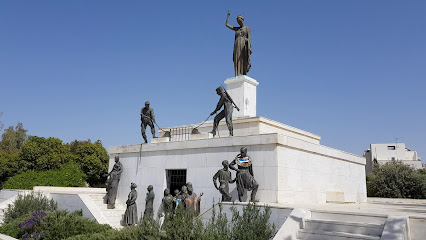
Sanctuary of Apollo Hylates
Explore the Sanctuary of Apollo Hylates in Episkopi, Cyprus - a captivating historical landmark steeped in ancient mythology and stunning architecture.
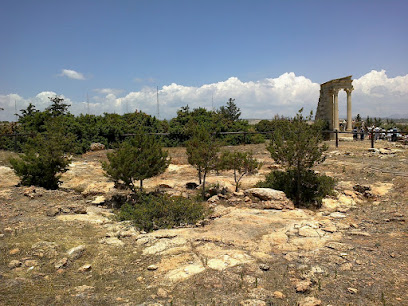
Archaeological Museum of the Lemesos (Limassol) District
Explore the Archaeological Museum of Limassol, a treasure trove of Cyprus's ancient history and cultural heritage.
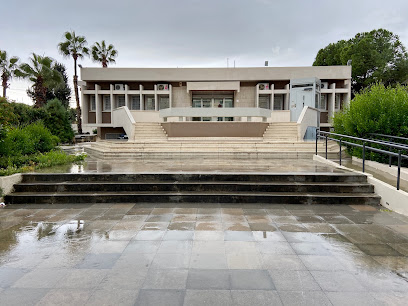
Archaeological Site of Tenta at Kalavasos
Explore the Archaeological Site of Tenta in Kalavasos, a historical landmark that unveils the ancient past of Cyprus with well-preserved ruins and stunning landscapes.
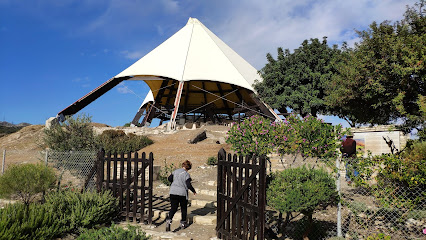
House of Eustolios
Explore the House of Eustolios in Episkopi, Cyprus – a stunning historical landmark showcasing exquisite Roman mosaics and rich cultural heritage.
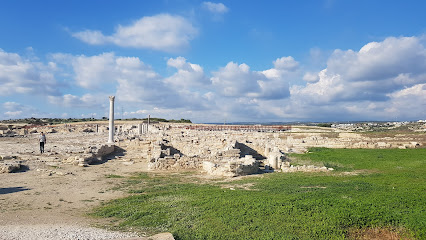
La Maltese Mansion
Experience historical charm and modern luxury at La Maltese Mansion, nestled in the heart of Limassol's vibrant old town.
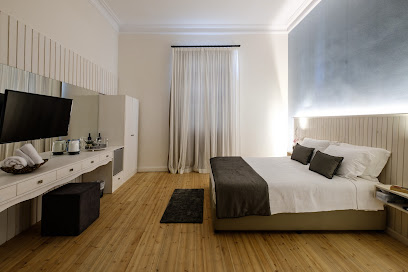
ESCAPE Limassol Old Town
Discover the thrill of ESCAPE Limassol Old Town, where adventure meets creativity in Cyprus's vibrant historic heart.
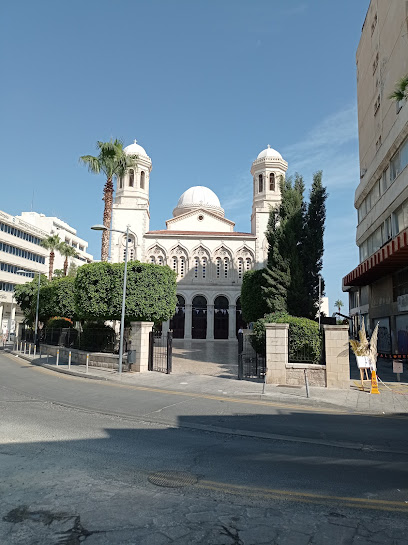
Unmissable attractions to see
Petra tou Romiou (Aphrodite's Rock)
Discover the mythical birthplace of Aphrodite, where ancient legends meet stunning coastal beauty, creating an unforgettable Cyprus experience.
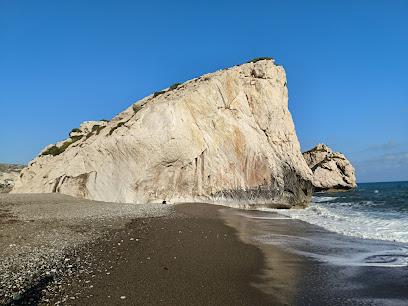
Limassol Marina
Experience the epitome of Mediterranean luxury at Limassol Marina, where world-class yachting meets upscale dining, designer shopping, and vibrant waterfront living in the heart of Limassol.
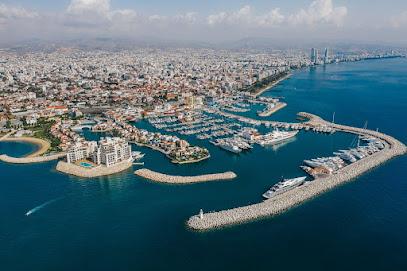
Kykkos Monastery
Discover Cyprus's spiritual heart at Kykkos Monastery, a Byzantine treasure nestled in the Troodos Mountains, showcasing religious art and offering panoramic views.
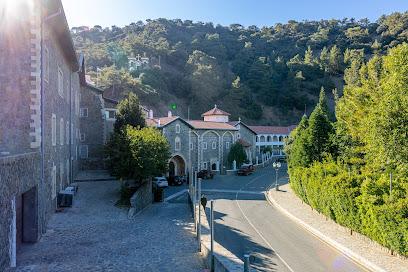
Limassol Castle - Cyprus Medieval Museum
Explore Cyprus's medieval past at Limassol Castle, a historic fortress housing the Cyprus Medieval Museum, offering panoramic city views and a journey through centuries of history.
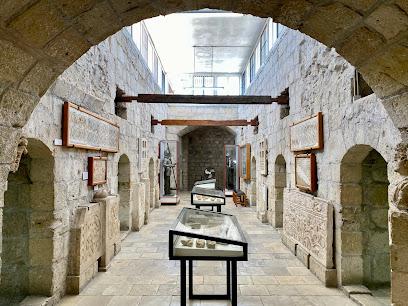
Kolossi Castle
Explore the medieval stronghold of Kolossi Castle, a Crusader fortress steeped in history and famed for Commandaria wine, just a short trip from Limassol.
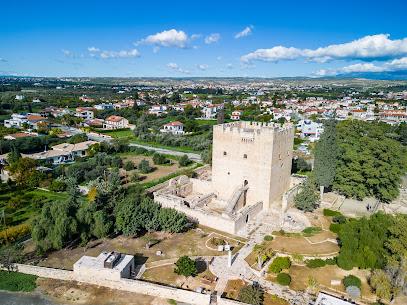
Υδροπάρκο Φασουρίου Watermania
Experience a thrilling day of aquatic adventures at Fasouri Watermania, Cyprus's largest waterpark, with attractions for all ages!
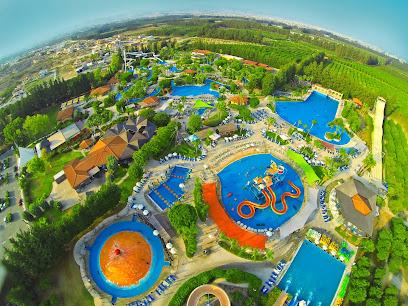
Limassol Municipal Garden
Discover a century-old green oasis in Limassol, offering a tranquil escape with lush landscapes, a zoo, archaeological treasures, and vibrant cultural events for an enriching experience.
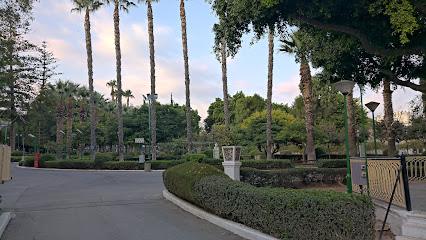
Timios Stavros Monastery
Discover the Timios Stavros Monastery in Omodos, Cyprus: a historic sanctuary with stunning architecture, religious relics, and a serene village atmosphere.
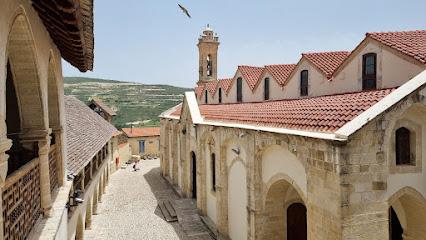
Kalidonia Waterfall
Escape to the serene beauty of Kalidonia Waterfall in the Troodos Mountains, where lush forests and cascading waters create an idyllic retreat for nature lovers and adventure seekers alike.
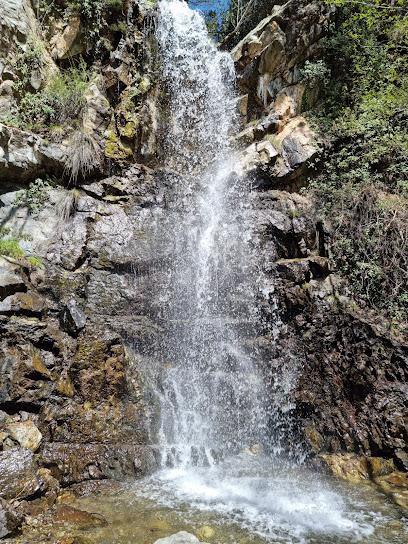
Paradox Museum Limassol
Experience mind-bending optical illusions and interactive exhibits at Paradox Museum Limassol, a unique destination blending education and entertainment for all ages in Limassol Marina.
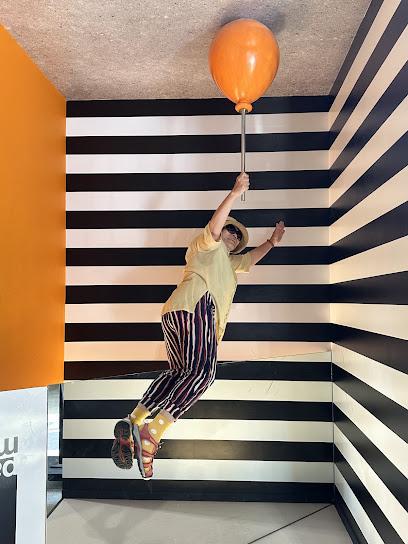
Lady's Mile Big Beach
Discover Lady's Mile Big Beach: A captivating Cyprus destination with golden sands, crystal-clear waters, rich history, and diverse activities for an unforgettable Mediterranean escape.
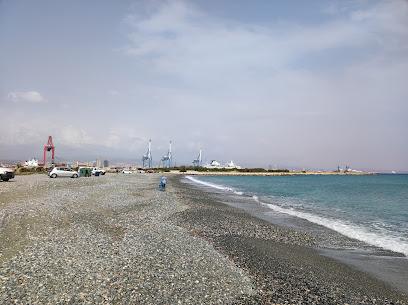
Lefkara
Discover Lefkara, Cyprus: A timeless village where exquisite lace, intricate silverwork, and rich cultural heritage create an unforgettable travel experience in the Troodos Mountains.
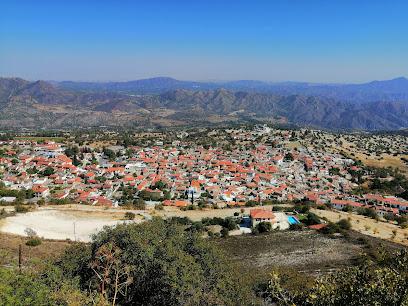
Dasoudi
Discover a coastal haven in Limassol at Dasoudi Park, where eucalyptus groves meet the Mediterranean Sea, offering a perfect blend of relaxation and recreation for all ages.
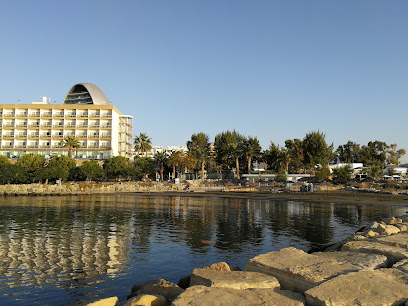
Neolithic Settlement of Choirokoitia
Unearth the secrets of Neolithic Cyprus at Choirokoitia, a UNESCO World Heritage site showcasing a remarkably preserved prehistoric settlement dating back 9,000 years.
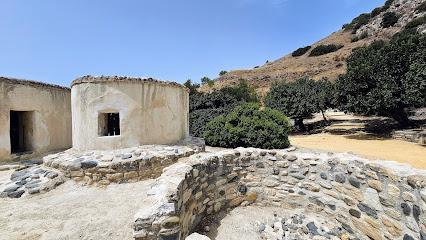
Tzelefos Bridge
Discover Cyprus's largest Venetian bridge, a hidden gem in the Paphos Forest, offering history and natural beauty.
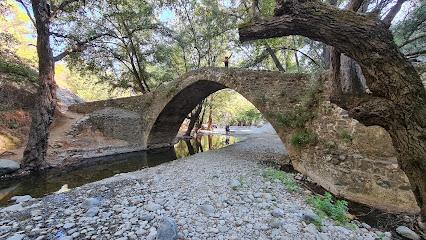
Essential places to dine
MEZE Taverna Restaurant
Savor authentic Greek flavors at MEZE Taverna in Limassol – where tradition meets taste!
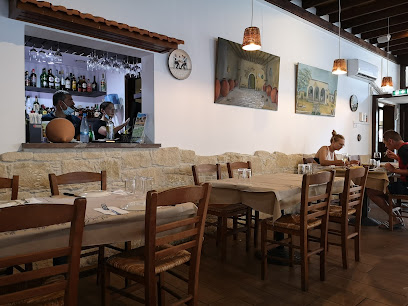
Columbia Beach
Discover the flavors of Cyprus at Columbia Beach – a culinary gem offering exquisite Mediterranean dishes and stunning seaside views.
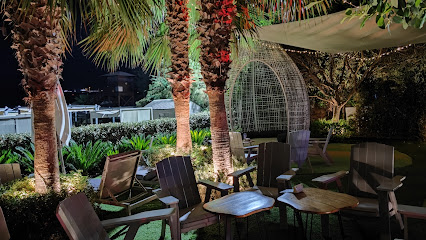
Jamie Oliver Kitchen
Discover exquisite Mediterranean flavors at Jamie Oliver Kitchen in Limassol's scenic marina - A must-visit culinary destination!
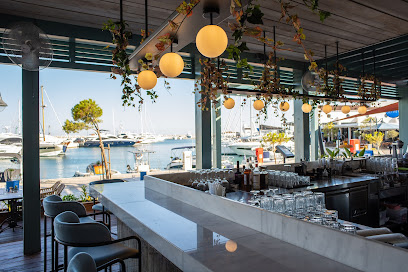
Dionysus Mansion
Experience authentic Greek cuisine at Dionysus Mansion in Limassol, where tradition meets modern culinary artistry.
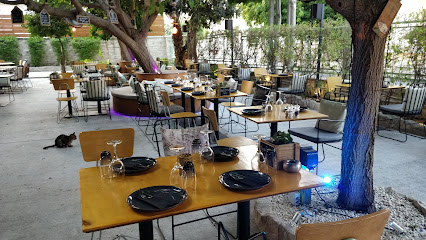
THYMARI
Experience authentic Greek cuisine at Thymari in Limassol's historic old port, where tradition meets flavor in every dish.
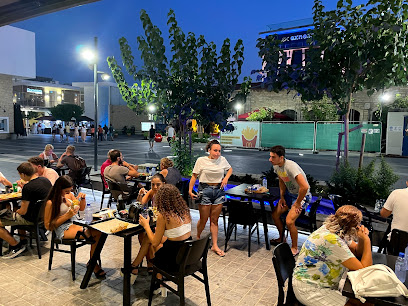
Ousia Soulful Kitchen
Discover Ousia Soulful Kitchen in Limassol: A Mediterranean culinary experience blending tradition with modern elegance.
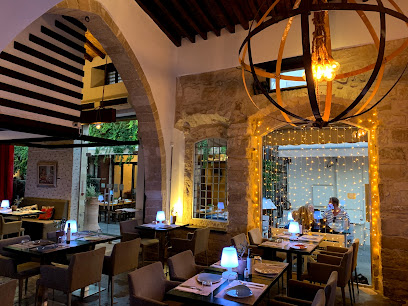
TGI Fridays - Limassol Marina
Experience classic American flavors at TGI Fridays in Limassol Marina—where great food meets stunning seaside views.
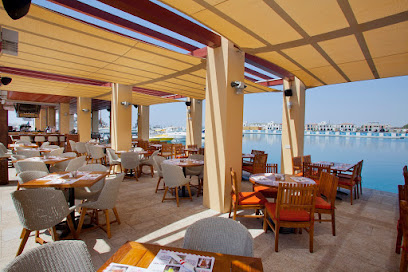
Terry's place
Discover authentic Cypriot flavors at Terry's Place in Limassol – where every meal is a celebration of local culture and hospitality.
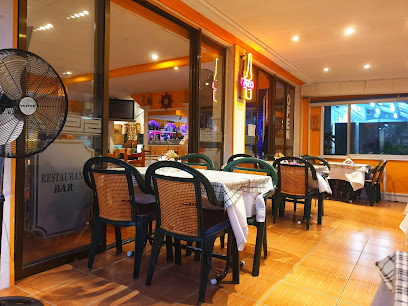
wagamama limassol marina
Discover Wagamama Limassol Marina - where vibrant Pan Asian flavors meet stunning waterfront views in Cyprus.
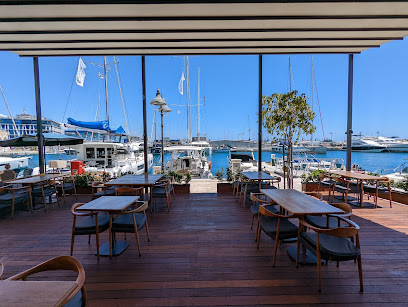
The Cookhouse
Discover authentic Cypriot cuisine at The Cookhouse in Limassol – where every meal tells a story.
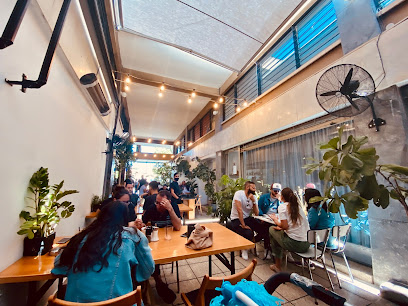
Karatello Tavern
Discover authentic Cypriot flavors at Karatello Tavern in Limassol - a must-visit destination for food lovers exploring Cyprus.
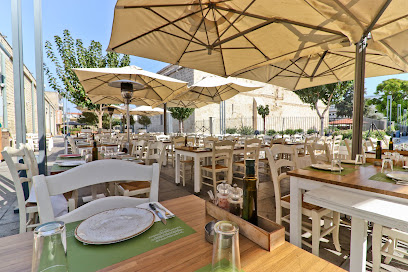
NOA
Discover NOA: A premier seafood destination in Agios Athanasios offering fresh flavors and a vibrant dining atmosphere.
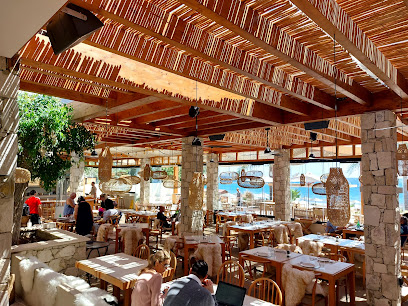
Tartufo Restaurant
Experience authentic Italian flavors at Tartufo Restaurant in Limassol—where culinary excellence meets warm hospitality.
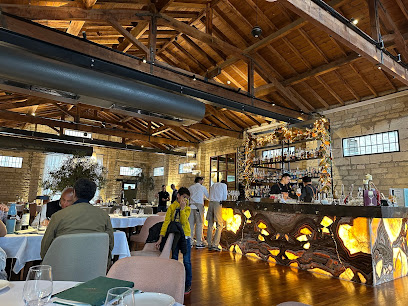
Jam Limassol
Experience the flavors of Cyprus at Jam Limassol - where traditional meets modern in every delicious dish.
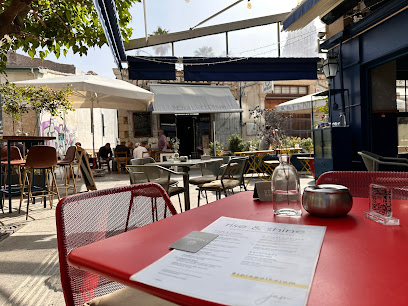
Pyxida Fish Tavern
Discover fresh seafood delights at Pyxida Fish Tavern in Limassol Marina, where every meal is a celebration of Mediterranean flavors.
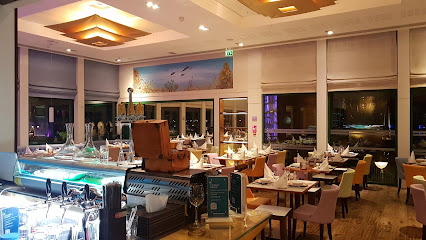
Markets, malls and hidden boutiques
MY MALL Limassol
Explore MY MALL Limassol: Your ultimate shopping, dining, and entertainment hub in Cyprus, offering diverse stores and delightful experiences.
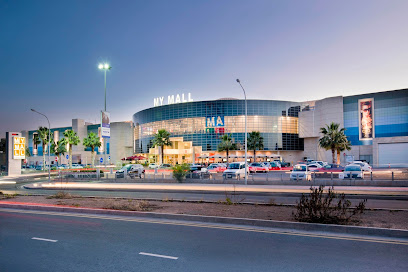
POW! The Shop
Explore a captivating collection of unique collectibles and local art at POW! The Shop in Limassol, Cyprus - a haven for treasure seekers.
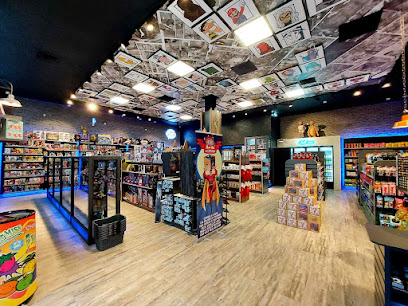
AEL Limassol Official Shop
Shop the latest AEL Limassol merchandise in a vibrant clothing store that celebrates local team spirit and style.
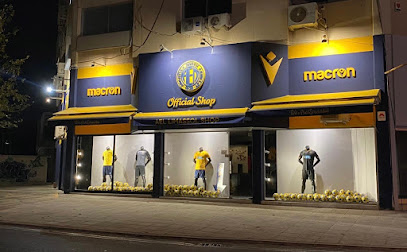
RightHere Cyprus
Explore unique treasures and vintage finds at RightHere Cyprus, a charming second-hand store in Limassol, perfect for treasure hunters and vintage lovers.
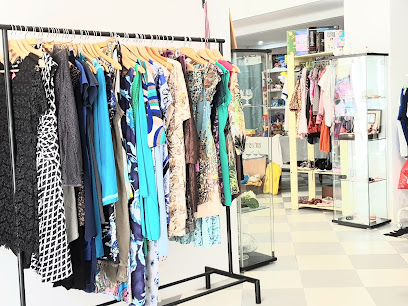
Cyprus Corner
Explore Cyprus Corner: Your destination for unique handmade souvenirs and local crafts in Limassol, capturing the true spirit of Cyprus.
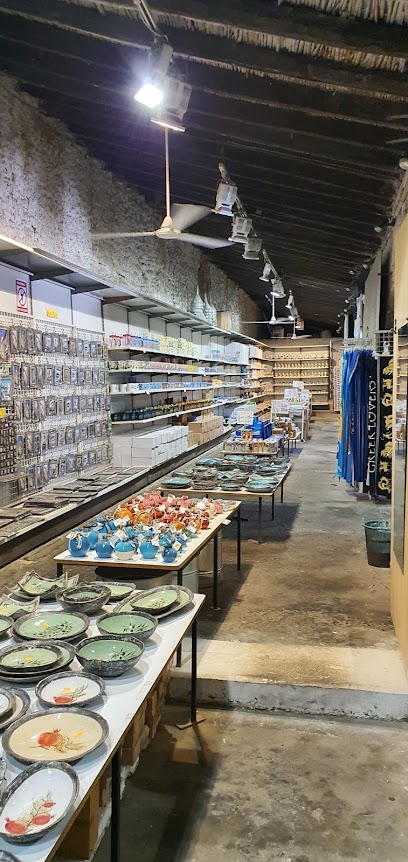
Hyper Fashion Boutique Limassol
Discover the latest fashion trends at Hyper Fashion Boutique in Limassol, offering unique styles and exceptional service for every occasion.
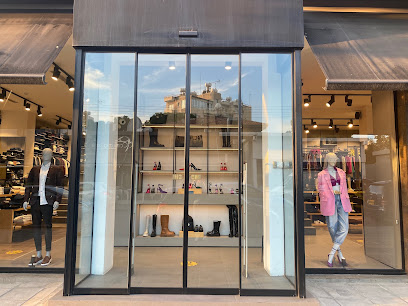
An.ge Lifestyle Boutique
Explore An.ge Lifestyle Boutique: Limassol's premier clothing store for unique, stylish apparel that defines modern fashion.
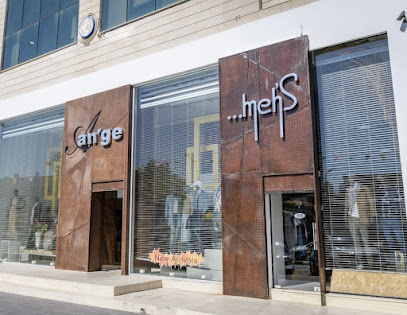
IAMINHATELOVE INDIE DESIGNER STORE
Explore IAMINHATELOVE Indie Designer Store in Limassol for unique, stylish clothing that captures the essence of local culture and creativity.
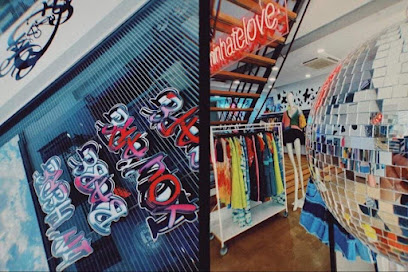
Kult Limassol
Discover luxury and style at Kult Limassol, a premier boutique offering a curated selection of high-end fashion along the beautiful Cypriot coastline.
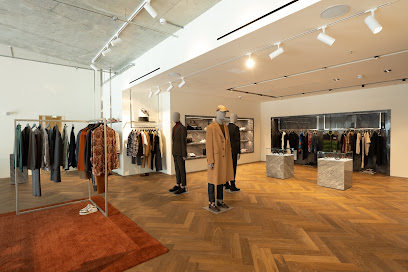
LEPUS Gift Shop - Agiou Andreou
Explore the vibrant LEPUS Gift Shop in Limassol for unique Cypriot gifts and souvenirs that capture the spirit of the island.
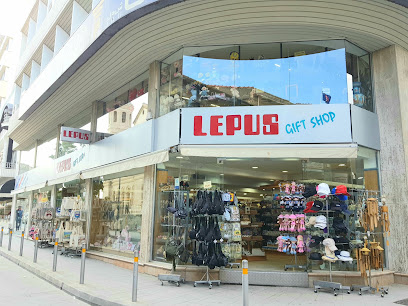
Lavender Shop Cy
Lavender Shop Cy: Your one-stop destination for exquisite perfumes and trendy cell phone accessories in Limassol, Cyprus.
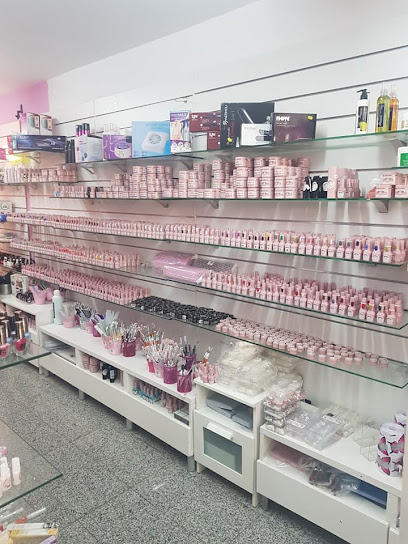
Minimalistic boutique
Explore the Minimalistic Boutique in Limassol for unique fashion pieces that blend modern design with local Cypriot charm.
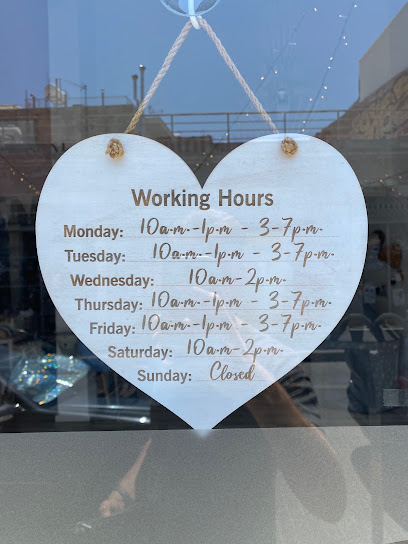
Hawana Gift Boutique Limassol
Explore Hawana Gift Boutique in Limassol for unique gifts, local delicacies, and delightful beverages that embody the spirit of Cyprus.
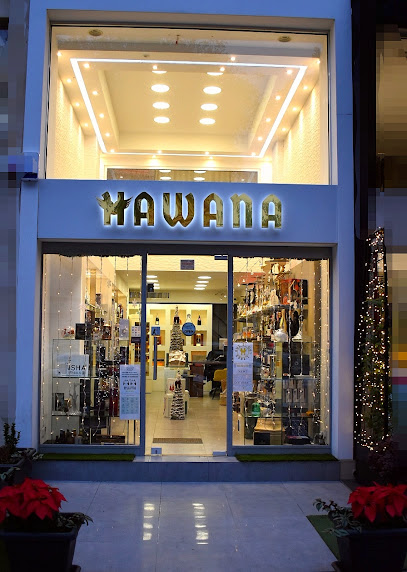
LEPUS Gift Shop - MYMALL Limassol
Shop unique gifts and stylish accessories at LEPUS Gift Shop in MYMALL Limassol, a must-visit destination for tourists seeking memorable souvenirs.

Lilipou
Explore Lilipou, the charming store in Limassol offering handcrafted gifts that celebrate the spirit of Cyprus.
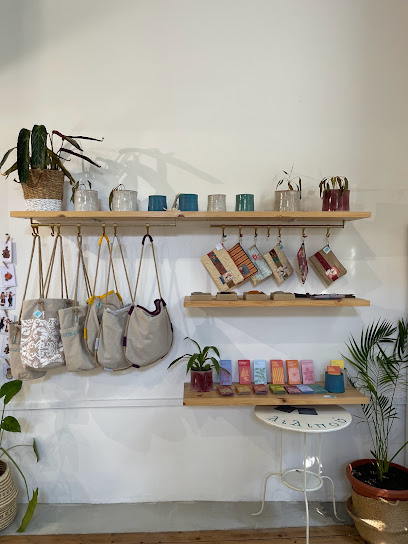
Essential bars & hidden hideouts
Bar Du Soleil
Experience the vibrant fusion of food, art, and relaxation at Bar Du Soleil, Limassol’s premier coastal café and bar.
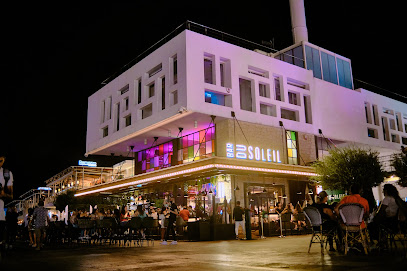
Poe Bar & Restaurant
Experience the vibrant flavors of American cuisine at Poe Bar & Restaurant, a top dining destination in Limassol, Cyprus.
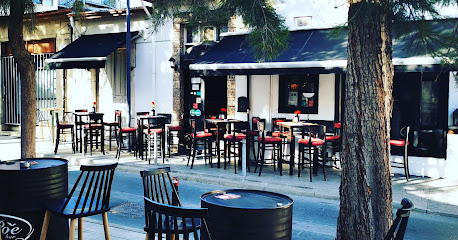
Da Vinci
Discover the vibrant fusion of culinary delights and karaoke entertainment at Da Vinci in Limassol, Cyprus.
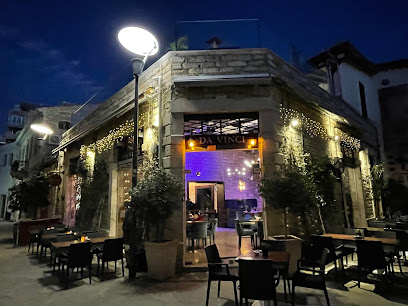
Tapper Bar
Discover the vibrant Tapper Bar in Limassol, Cyprus, a craft beer haven with a welcoming atmosphere and unique selections for every palate.
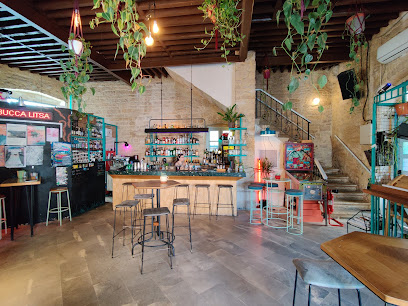
Mason Bar
Experience the vibrant nightlife of Limassol at Mason Bar, where cocktails and live music create unforgettable memories.
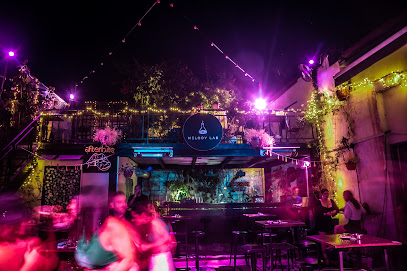
Chaplins Bar
Discover Chaplins Bar, a lively Limassol hotspot offering a welcoming atmosphere, great drinks, and unforgettable nightlife experiences.
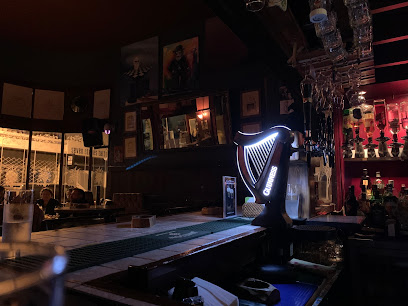
Madame
Discover the lively atmosphere and exquisite cocktails at Madame Bar, a must-visit nightlife destination in Limassol, Cyprus.
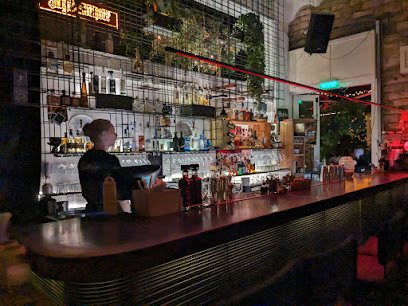
Lithos Concept bar
Experience the vibrant nightlife of Kastrou at Lithos Concept Bar, where exquisite cocktails and stylish ambiance come together for an unforgettable night out.
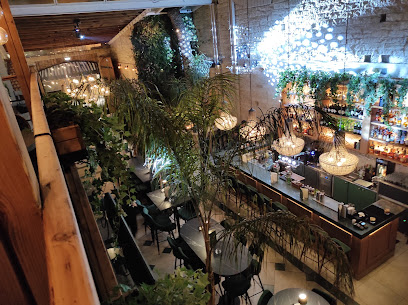
Marina Roof Bar
Discover the breathtaking views and vibrant atmosphere at Marina Roof Bar in Limassol, where unforgettable experiences await you.
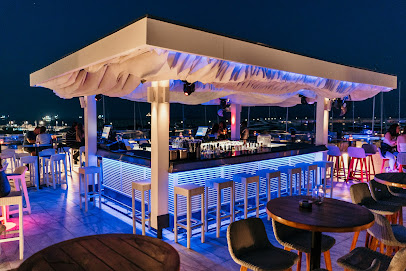
Dusty Munky
Discover the lively atmosphere and creative cocktails at Dusty Munky, Limassol's hotspot for nightlife and socializing.
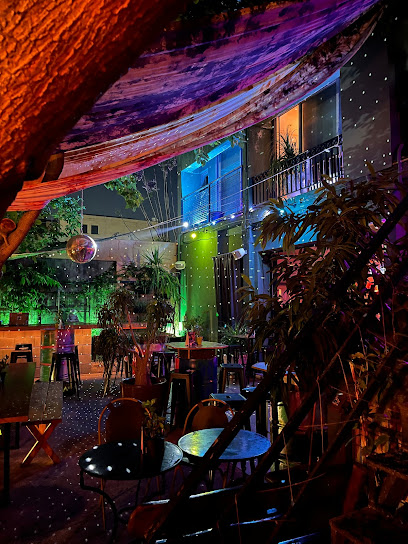
Vinylio Wine Etc
Discover the enchanting Vinylio Wine Etc in Limassol, where exquisite wines and a cozy ambiance create unforgettable moments.
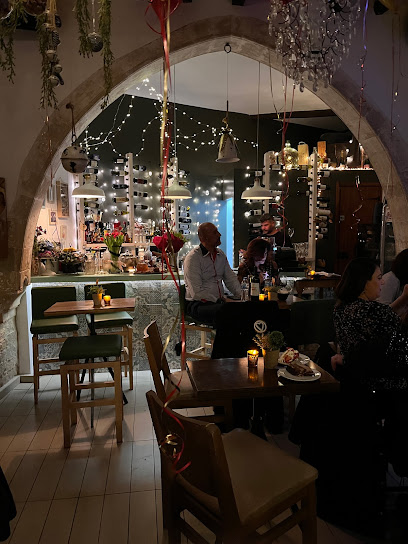
Bar Louise
Discover the vibrant atmosphere and exquisite drinks at Bar Louise, a must-visit bar in Limassol, Cyprus, perfect for a night out.
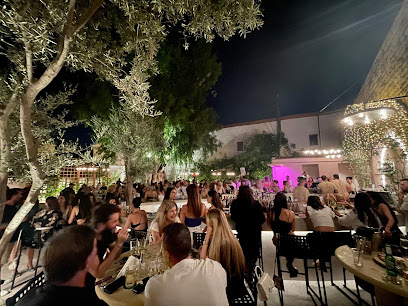
Blue Apple Bar & Grill
Experience the lively ambiance of Blue Apple Bar & Grill in Limassol, offering a unique blend of delicious brunch and vibrant nightlife.
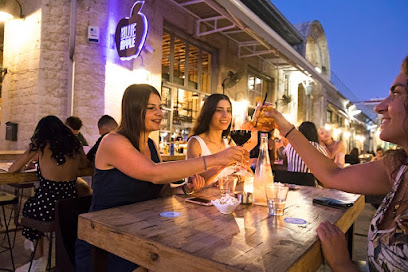
Tipsy Donkey Drinkery
Experience the lively ambiance and unique cocktails at Tipsy Donkey Drinkery, a must-visit bar in Limassol, Cyprus.
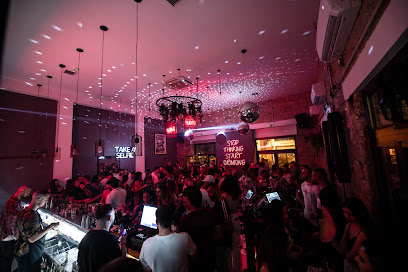
Local Phrases
-
- HelloΓεια σας
[Ya sas] - GoodbyeΑντίο
[Adio] - YesΝαι
[Ne] - NoΌχι
[Ohi] - Please/You're welcomeΠαρακαλώ
[Parakalo] - Thank youΕυχαριστώ
[Efharisto] - Excuse me/SorryΣυγνώμη
[Signomi] - How are you?Τι κάνεις;
[Ti kanis?] - Fine. And you?Καλά. Εσύ;
[Kala. Esi?] - Do you speak English?Μιλάς Αγγλικά;
[Milas Agglika?] - I don't understandΔεν καταλαβαίνω
[Den katalaveno]
- HelloΓεια σας
-
- I'd like to see the menu, pleaseΘα ήθελα να δω το μενού, παρακαλώ
[Tha ithela na do to menou, parakalo] - I don't eat meatΔεν τρώω κρέας
[Den troo kreas] - Cheers!Υγεία!
[Ygeia!] - I would like to pay, pleaseΘα ήθελα να πληρώσω, παρακαλώ
[Tha ithela na plirosou, parakalo]
- I'd like to see the menu, pleaseΘα ήθελα να δω το μενού, παρακαλώ
-
- Help!Βοήθεια!
[Voithia!] - Go away!Φύγε!
[Fiye!] - Call the Police!Καλέστε την Αστυνομία!
[Kaleste tin Astinomia!] - Call a doctor!Καλέστε για γιατρό!
[Kaleste ya yatro!] - I'm lostΈχω χαθεί
[Eho hathi] - I'm illΕίμαι άρρωστος
[Eimai arrostos]
- Help!Βοήθεια!
-
- I'd like to buy...Θα ήθελα να αγοράσω...
[Tha ithela na agoraso...] - I'm just lookingΑπλά κοιτάω
[Apla kiitao] - How much is it?Πόσο κοστίζει;
[Poso kostizi?] - That's too expensiveΑυτό είναι πολύ ακριβό
[Afto ine poli akribo] - Can you lower the price?Μπορείτε να μειώσετε την τιμή;
[Boreite na meiosete tin timi?]
- I'd like to buy...Θα ήθελα να αγοράσω...
-
- What time is it?Τι ώρα είναι;
[Ti ora ine?] - It's one o'clockΕίναι μία ώρα
[Ine mia ora] - Half past (10)Μισή (10)
[Misi (dekα)] - MorningΠρωί
[Proi] - AfternoonΑπόγευμα
[Apoyevma] - EveningΒράδυ
[Vradi] - YesterdayΧθες
[Hthes] - TodayΣήμερα
[Simera] - TomorrowΑύριο
[Avrio] - 1Ένα
[Ena] - 2Δύο
[Dyo] - 3Τρία
[Tria] - 4Τέσσερα
[Tessera] - 5Πέντε
[Pente] - 6Έξι
[Exi] - 7Εφτά
[Efta] - 8Οκτώ
[Okto] - 9Εννιά
[Ennia] - 10Δέκα
[Deka]
- What time is it?Τι ώρα είναι;
-
- Where's a/the...?Πού είναι ένα/το...;
[Pou ine ena/to...?] - What's the address?Ποια είναι η διεύθυνση;
[Poia ine i diefthinsi?] - Can you show me (on the map)?Μπορείτε να μου δείξετε (στο χάρτη);
[Boreite na mou deksete (sto charti)?] - When's the next (bus)?Πότε είναι το επόμενο (λεωφορείο);
[Pote ine to epomeno (leoforeio)?] - A ticket (to ....)Ένα εισιτήριο (για το ....);
[Ena isitirio (ya to ....)?]
- Where's a/the...?Πού είναι ένα/το...;
History of Limassol
-
Limassol's history dates back to antiquity, with evidence of human settlement as early as the 2nd millennium BC. The city is believed to have been built between two ancient cities, Amathus and Kourion. These ancient cities were significant centers of culture and commerce, influencing the development of Limassol.
-
During the Byzantine period, Limassol began to grow in importance. It was known as Neapolis during this time. The city was strategically located, which made it a pivotal point for trade and military activities in the Mediterranean. Byzantine churches and fortifications from this era still stand as a testament to its historical significance.
-
In 1191, Limassol gained historical prominence when Richard the Lionheart, King of England, arrived in Cyprus during the Third Crusade. Richard married Berengaria of Navarre in Limassol, and she was crowned Queen of England there. This event marked the beginning of a period of Western European influence on the island.
-
Following the Crusades, Limassol came under the control of the Lusignan dynasty, who ruled Cyprus from 1192 to 1489. This period saw the construction of many Gothic structures, including the Limassol Castle. In 1489, the Venetians took control of Cyprus, and their rule lasted until the Ottoman conquest in 1571. The Venetians fortified the city, leaving behind architectural legacies that can still be seen today.
-
The Ottomans ruled Cyprus, including Limassol, from 1571 to 1878. This era brought significant changes to the city's social and economic structure. The Ottoman influence is evident in the architecture, including mosques and public baths. Limassol became a melting pot of cultures, with Greek, Turkish, and Maronite communities coexisting.
-
In 1878, Cyprus was leased to the British Empire, and Limassol underwent modernization under British rule. This period saw the development of infrastructure, including roads, schools, and administrative buildings. The British influence is still visible in the city's architecture and urban planning. Limassol evolved into a significant port city, boosting trade and commerce.
-
Cyprus gained independence from British rule in 1960, and Limassol continued to grow as a major economic and cultural hub. The city became known for its vibrant festivals, such as the Limassol Wine Festival and the Limassol Carnival. Today, Limassol is a bustling metropolis, blending its rich historical heritage with modern development. It is a center for tourism, commerce, and cultural activities in Cyprus.
Limassol Essentials
-
Limassol is easily accessible by air through Larnaca International Airport, which is approximately 70 kilometers away, or Paphos International Airport, about 60 kilometers away. From either airport, you can take a taxi, rent a car, or use shuttle services to reach Limassol. There are also intercity buses that connect Limassol with other major cities in Cyprus.
-
Limassol has a well-developed transportation network. Local buses are available and cover the main parts of the city. Taxis are also widely available and can be hailed on the street or booked via phone. For more flexibility, car rentals are a popular option. Cycling is also a viable means of transportation, with several bike rental shops available within the city.
-
The official currency of Cyprus is the Euro (EUR). Credit and debit cards are widely accepted in hotels, restaurants, and shops. ATMs are plentiful throughout Limassol, and contactless payment methods are increasingly popular. However, it is advisable to carry some cash for small purchases, especially in local markets and smaller establishments.
-
Limassol is generally a safe city for tourists. However, standard precautions should be taken. Avoid poorly lit or deserted areas at night, and keep an eye on your belongings in crowded places. While Limassol does not have specific high-crime neighborhoods targeting tourists, petty theft can occur, particularly in busy tourist areas.
-
In case of an emergency, dial 112 for immediate assistance. Limassol has several hospitals and clinics that provide medical services. It is recommended to have travel insurance that covers medical emergencies. Pharmacies are readily available and can provide over-the-counter medications. For police assistance, you can also dial 199.
-
Fashion: Do dress modestly, especially when visiting religious sites. Avoid beachwear outside of beach areas. Religion: Do respect local customs and traditions. Remove hats and cover shoulders when entering churches. Public Transport: Do be punctual and respectful. Don’t eat or drink on public transport. Greetings: Do greet with a handshake or a friendly nod. More formal greetings may involve a slight bow. Eating & Drinking: Do try local dishes and accept hospitality graciously. Don’t refuse food or drink without a polite explanation, as it may be considered rude.
-
To experience Limassol like a local, visit the old town and the Limassol Marina. Explore the local markets like the Municipal Market for fresh produce and traditional goods. Engage with locals, who are generally friendly and eager to share their culture. Don’t miss the annual events such as the Limassol Carnival and Wine Festival, which offer a deep dive into Cypriot culture and traditions.
Trending Landmark in Limassol
-
Molos
-
Κourion Ancient Amphitheater
-
Limassol Castle - Cyprus Medieval Museum
-
Kolossi Castle
-
Limassol Municipal Garden
-
Υδροπάρκο Φασουρίου Watermania
-
Archaeological Site of Amathous
-
Ayia Napa Cathedral
-
The Liberty Monument
-
Sanctuary of Apollo Hylates
-
Archaeological Museum of the Lemesos (Limassol) District
-
Archaeological Site of Tenta at Kalavasos
-
House of Eustolios
-
La Maltese Mansion
-
ESCAPE Limassol Old Town
Nearby Cities to Limassol
-
Things To Do in Troodos
-
Things To Do in Pissouri
-
Things To Do in Paphos
-
Things To Do in Kato Paphos
-
Things To Do in Larnaca
-
Things To Do in Nicosia
-
Things To Do in Polis Chrysochous
-
Things To Do in Kyrenia
-
Things To Do in Ayia Napa
-
Things To Do in Famagusta
-
Things To Do in Protaras
-
Things To Do in Alanya
-
Things To Do in Beirut
-
Things To Do in Batroun
-
Things To Do in Byblos















